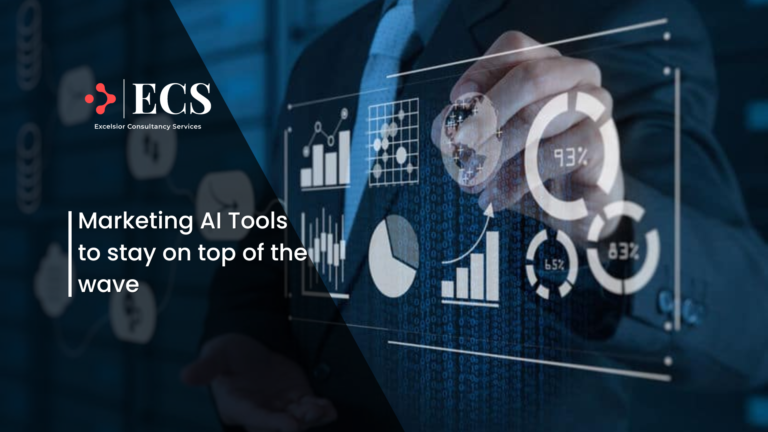Marketing AI Tools to stay on top of the wave

Marketing is an ever-evolving field, and with the rise of digital marketing, the use of AI tools has become increasingly prevalent. These tools can help businesses stay on top of the wave and remain competitive in today’s fast-paced business landscape.
AI technology has achieved what was once considered impossible, and as more and more AI tools are integrated into work cultures, it’s important to identify those that can benefit your company. The AI revolution is changing the way business is done across various sectors, and while it may be seen as a threat, it’s also helping individuals concentrate on essential tasks. In today’s workforce, particularly for marketers, the chances of not utilizing AI in some form are slim.
In this blog, we’ll take a look at some of the best AI tools for marketing and how they can help businesses stay ahead of the competition.
1. Chatbots
Chatbots are becoming increasingly popular in the world of marketing. These AI tools use natural language processing to understand and respond to customer queries in real-time. They can be used on websites, social media, and messaging platforms to provide customers with instant answers to their questions. This can help businesses provide better customer service, increase engagement, and improve the customer experience.
2. Personalization tools
Personalization is key to successful marketing, and AI tools can help businesses personalize their marketing efforts at scale. Personalization tools use data analysis to understand customer behavior and preferences, and they can create customized marketing messages for each customer. This can help businesses improve customer engagement and drive more conversions.
3. Predictive analytics
Predictive analytics uses machine learning algorithms to analyze data and make predictions about future customer behavior. This can help businesses make more informed marketing decisions and optimize their campaigns for maximum impact. By using predictive analytics, businesses can identify trends, anticipate customer needs, and target their marketing efforts more effectively.
4. Social media analytics
Social media analytics tools use AI to analyze social media data and provide insights into customer behavior and sentiment. This can help businesses understand how customers are responding to their marketing campaigns and identify areas for improvement. By using social media analytics, businesses can optimize their social media strategy and improve engagement with their target audience.
5. Content optimization
Content is king in the world of marketing, and AI tools can help businesses optimize their content for maximum impact. Content optimization tools use machine learning algorithms to analyze customer behavior and preferences and create customized content recommendations. This can help businesses improve their content marketing efforts and increase engagement with their target audience.
6. Marketing automation
Marketing automation tools use AI to automate repetitive marketing tasks such as email campaigns, social media posting, and lead nurturing. This frees up time for marketers to focus on more strategic initiatives, while still ensuring that customers receive personalized and relevant content.
7. Image recognition
Image recognition tools use machine learning algorithms to analyze images and recognize patterns. This can be useful in marketing for identifying products, logos, and even faces in images. With image recognition, businesses can enhance their marketing efforts by creating personalized content based on images that customers have previously engaged with.
8. Voice search optimization
With the rise of smart speakers and virtual assistants, voice search optimization is becoming increasingly important. AI-powered voice search optimization tools can help businesses optimize their content for voice search, improving their chances of being found by customers using these devices.
The challenges of using Artificial Intelligence
It is true that AI tools are playing an increasingly important role in the field of marketing. They offer various capabilities that can enhance businesses’ marketing efforts and improve customer interactions. Chatbots, for example, can provide instant and personalized responses to customer inquiries, improving customer service and engagement. Predictive analytics can help businesses gain insights into customer behavior and preferences, enabling them to tailor their marketing strategies accordingly. By leveraging these tools, businesses can optimize their campaigns, target the right audience, and deliver more effective marketing messages.
However, it is also important to recognize that misuse of AI technology can have negative consequences. The ability of AI to replicate human speech patterns and generate realistic audio has raised concerns regarding the creation of fabricated recordings or deepfakes. These deepfakes can be used to deceive and manipulate individuals, spreading misinformation or generating offensive content.
The issue of voice cloning and the creation of fabricated recordings has been acknowledged by organizations and is being taken seriously. The misuse of this technology, particularly in generating derogatory or discriminatory language, is a significant concern. Organizations are becoming increasingly aware of the potential harm and are actively working to implement measures to address this problem.
One approach to tackling this issue is the development of safeguards and regulations that can help prevent the misuse of AI technology. This can involve implementing stricter guidelines for the use of voice cloning technology, ensuring that appropriate permissions and consent are obtained before creating or distributing audio content. Additionally, organizations can invest in advanced detection and verification systems that can identify deepfakes and fabricated recordings, enabling them to take appropriate action.
Conclusion
Overall, while AI tools offer numerous benefits in the marketing field, it is crucial to address the potential risks and challenges associated with their misuse. By implementing safeguards and raising awareness about the responsible use of AI, organizations can ensure that these tools are leveraged ethically and effectively.


